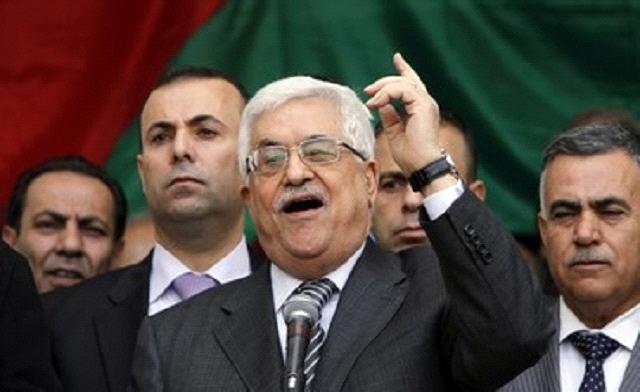Ammon News - By AL ARABIYA /AGENCIES
Palestinian Authority (PA) President Mahmoud Abbas will head to New York on Monday to seek the U.N.’s approval for upgrading the PA’s status to non-member observer.
Disregarding demands from the U.S. and some EU countries, Abbas is planning to present the request to the U.N. this coming Thursday.
Palestine is far from being established, but U.N. recognition would affirm its future borders and enable the Palestinians to join U.N. organizations. Israel, backed by the Obama administration, opposes the U.N. bid as an attempt to bypass negotiations.
Abbas says he’s willing to resume talks once the 1967 borders have been recognized as the baseline, something hardline Israeli Prime Minister Benjamin Netanyahu refuses to do. Israel, while willing to cede some land, says it will not withdraw to the 1967 lines, and has instead moved half a million Israelis into settlements on war-won land.
“The upgraded status would permit Palestinians to take part in General Assembly debates, and more importantly, improve their chances of joining U.N. agencies and the International Criminal Court,” wrote London-based writer and Arab commentator Sharif Nashashibi for Al Arabiya last week.
“If they are able to sign the ICC’s founding treaty, the Rome Statute, this would allow legal action in the court to challenge Israel’s occupation,” he added.
“I’m going to the UN to demand a just peace based on international legitimacy to achieve an independent Palestinian state with Jerusalem as its capital,” Abbas declared. He also pledged to work toward seeking the release of Palestinian “heroes” from Israeli prisons.
“We are going to the U.N. fully confident in our steps. We will have our rights because you are with us,” he told a crowd of around 1,000 people demonstrating support on Sunday for the bid to upgrade the Palestinian rank.
“We ask for a just peace, which is agreed on by the international community which will give us our state with east Jerusalem as its capital. Without that, there is no hope at all,” he said.
Abbas said the attempt to secure upgraded status was backed by many U.N. member states and by all the Palestinian political factions.
“We are on our way to the United Nations and there are a lot of states supporting us, who support peace and justice. All of the factions are with us in going to the United Nations,” he said.
Hamas chief Khaled Meshaal on Monday told Palestinian president Mahmoud Abbas that his movement backs a bid for enhanced U.N. status for the Palestinians, a Hamas statement said.
“Khaled Meshaal... held a telephone conversation with Palestinian president Mahmud Abbas in which he affirmed that Hamas welcomes the step of going to the United Nations for state observer status,” the statement said.
But both Meshaal and fellow political bureau member Izzat al-Rishq said Monday that they supported the move, though they warned it should not “compromise” Palestinian “constants and rights.”
“This move must be in the context of a vision and national strategy to maintain the national constants and rights and based on elements of power in the hands of our Palestinian people, the first of which is the resistance,” Meshaal’s statement said.
Last week, Gaza’s ruling Hamas movement denied a report by the official Palestinian news agency WAFA that Hamas prime minister Ismail Haniya had expressed support for the U.N. bid in a phone call with Abbas.
Abbas said the U.N. move would be followed by steps to bridge the bitter political divide between his Fatah movement and its Islamist rival Hamas.
“Today, the U.N.. After that, reconciliation, and after that, our own state,” he said.
But even such recognition, likely to be granted, may not be enough for the Western-backed backed proponent of non-violence and a peace deal with Israel to stay relevant.
Earlier this week, U.S. Secretary of State Hillary Rodham Clinton again urged Abbas in a meeting at his West Bank headquarters to the U.N. plan, said Abbas aide Saeb Erekat.
However, Abbas, widely known as Abu Mazen, told Clinton and other recent visitors, including the French and German foreign ministers, that he is determined to move ahead.
The Palestinians can count on support from Arab, Muslim and many developing and non-aligned countries. They have been courting European Union member states, many of them skeptical, but it’s not clear if they’ve made inroads there.
